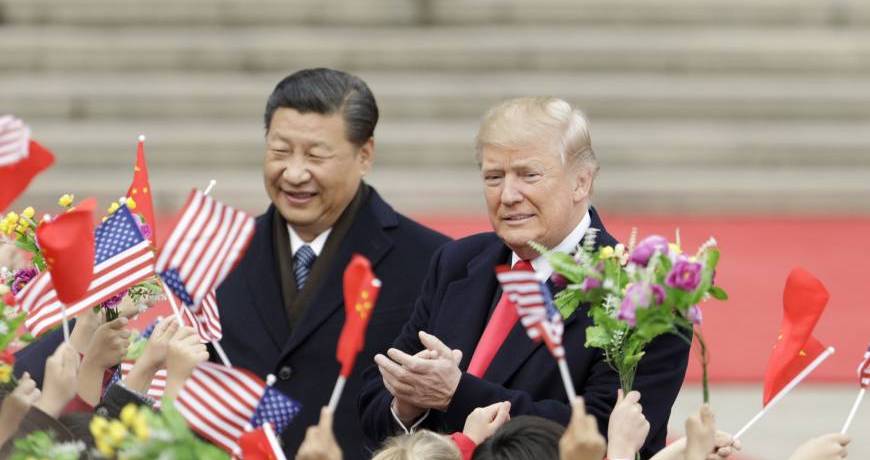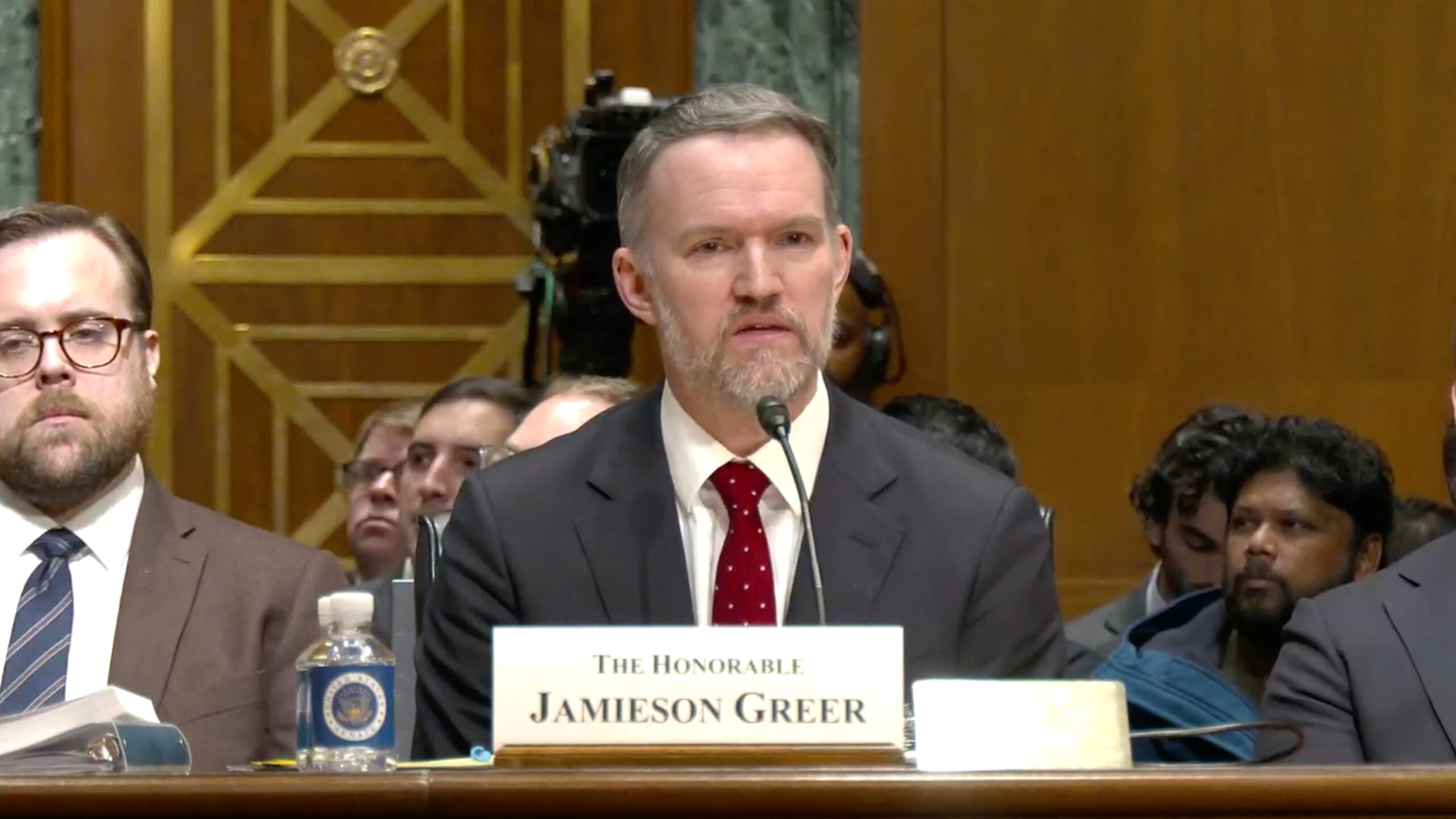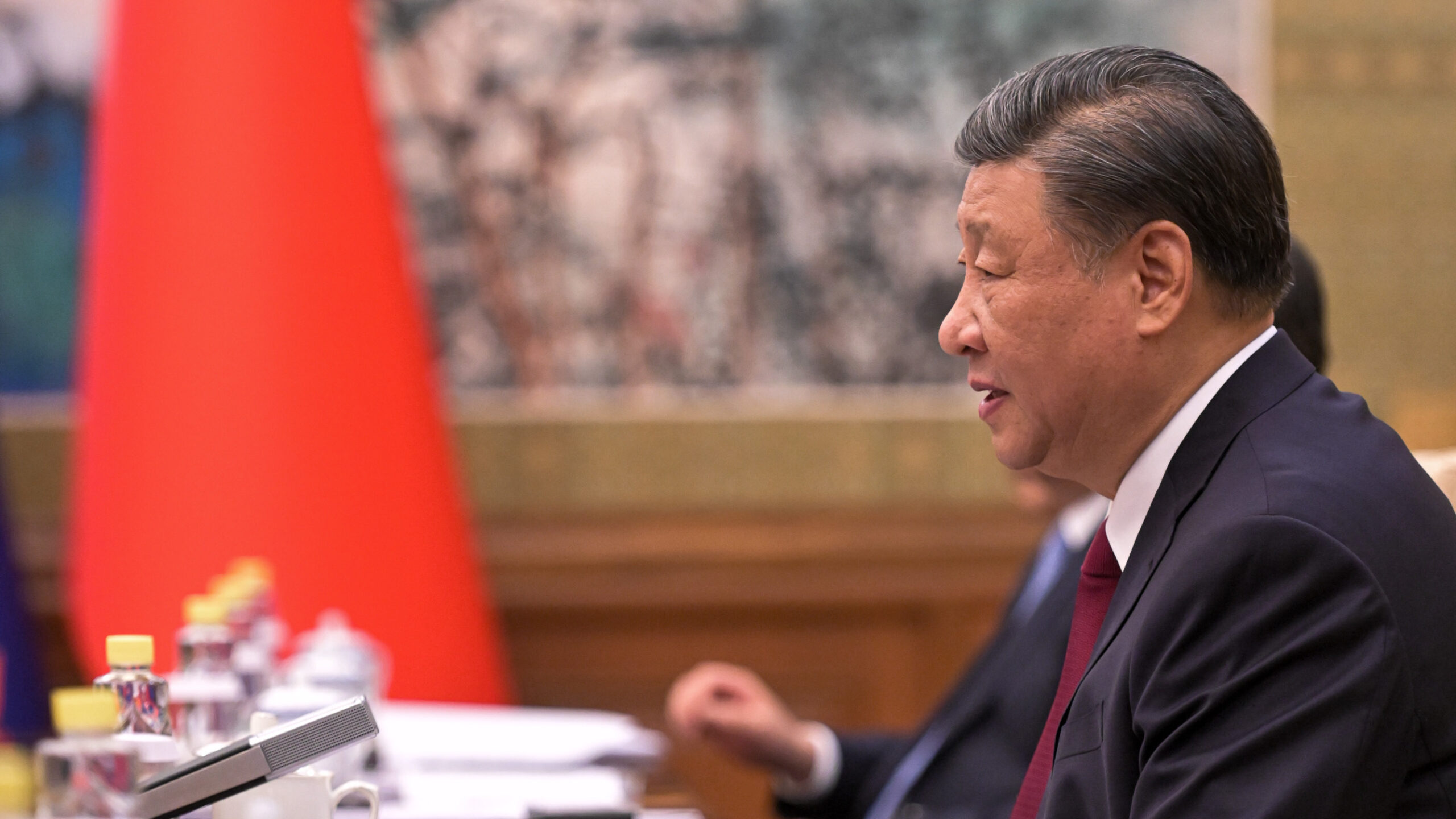One of the remarkable things about the Donald Trump era is how significantly the American conversation about China has changed.
[ Hal Brands | September 7, 2018 | Japan Times ]
As recently as 2016, Barack Obama argued that a weak China that could not contribute to solving global problems was more dangerous than a strong and potentially aggressive China. The Trump administration, by contrast, has identified China as the biggest long-term threat to geopolitical and geoeconomic interests of the United States. Trump himself has labeled Beijing an implacable economic competitor even as he has occasionally tried to buddy up to Chinese President Xi Jinping.
In sum, only a few years ago, China was seen primarily as a difficult but essential partner, one that might yet be co-opted into supporting the U.S.-led international system. Today, it is more often described primarily as a destabilizing revisionist power.
Amid the chaos of the Trump presidency, it can be hard to tell what has changed permanently and what has shifted only temporarily. Yet this transformation in U.S. views of China seems likely to outlast Trump’s tenure. Polls show that the American public has grown more skeptical of Beijing’s intentions. In 2016, 82 percent of Americans saw China’s ongoing military buildup as a somewhat serious or very serious concern. More recently, the number of Americans considering China the greatest immediate threat tripled from 2017 to 2018.
For nearly 25 years, there was a bipartisan consensus on the need for intensive engagement with Beijing. Now, one can see the outlines of a nascent — if still incomplete — consensus stressing the need for stiffer competition.
That consensus begins with intensifying concern about the national security risks a rising China poses. Although the foreign policy establishment often finds itself at odds with Trump and his “America First” agenda, when it comes to China most members of that establishment broadly agree with the way the Trump administration defines the China threat.
As Xi has reached for power and influence on the global stage, the perception that China is determined to unseat the U.S. as the dominant actor in the Asia-Pacific region — and perhaps globally — has become more widespread among informed observers of U.S. policy. So has the belief that efforts to change Beijing’s behavior and limit its ambitions through persistent economic and diplomatic engagement have failed to produce the desired results.
Earlier this year, two former high-ranking Democratic foreign policy officials — Kurt Campbell and Ely Ratner — wrote an article describing the China challenge in roughly the same terms as Trump’s National Security Strategy. It is hard to imagine the next administration’s strategy identifying China as anything other than the most formidable great-power challenger the U.S. has faced in decades.
The nascent consensus on China also reflects the fact that Beijing has come to represent a major ideological threat. In the 1990s and early 2000s, it was widely assumed that ideological conflict was a thing of the past, because Beijing would eventually liberalize both economically and politically. Now, that rosy scenario has largely been abandoned.
China is becoming steadily more autocratic under Xi; it is also seeking to expand its influence and ensure its security by promoting authoritarianism abroad. As the Chinese regime undermines democratic rule in Hong Kong and Taiwan, undertakes horrific repression against Muslims in Xinjiang, supports autocrats in countries from Cambodia to Venezuela, and seeks to stifle free speech even in Europe and the U.S., it is earning itself a reputation as the leader of an authoritarian resurgence that is promoting repression and undermining democratic values around the world.
This may seem like an abstract issue, but for Americans it has traditionally been quite powerful. As pointed out in a recent essay by Aaron Friedberg, a Princeton professor and former national security official in the George W. Bush administration, nearly every time the U.S. has mobilized for a serious competition with a great power rival — whether Nazi Germany or the Soviet Union — it has done so in part because that rival seemed to threaten the survival and spread of American political ideals. Just last week, a bipartisan group of senators and representatives urged Trump to slap sanctions on Chinese officials involved in creating Beijing’s “high-tech police state” in Xinjiang. Expect to see more of this in the future.
Then there is the third driver of rising American hostility to China: the threat to U.S. economic competitiveness. To be clear, organized labor was always skeptical of engagement with China, out of fears — justified, as it turned out — that increased trade with Beijing would accelerate the hollowing out of American manufacturing. Yet that concern has become more politically salient, as Trump harnessed frustration with the dislocations of globalization in his 2016 campaign — with China as the poster child for all that had gone wrong. As Trump showed, there are votes in China-bashing.
More broadly, the past few years have produced growing evidence that China is not simply labor’s problem. It now represents a larger economic threat, through practices such as forced technology transfer, deliberate efforts to weaken the U.S. industrial and technological base, and its Made in China 2025 project that aims to make Beijing dominant in numerous critical sectors. Americans are becoming less likely to see China as a massive market for U.S. goods and debt, and more as a predatory competitor. Recent polls show that overwhelming majorities of Americans now see Chinese economic strength and Chinese economic practices as somewhat serious or very serious concerns.
Yet the economic realm is where the emerging consensus on China remains most tenuous, because a critical constituency — the U.S. business community — is still of two minds on the matter. On the one hand, there are plenty of American firms — media outlets, tech companies and others — that have experienced rampant intellectual property theft, bullying and censorship, and other abusive Chinese practices. On the other hand, there are still gobs of money to be made in China, and the Chinese are experts at employing the divide-and-conquer tactics that prevent U.S. firms from more effectively asserting their interests.
These factors are sometimes exacerbated by the mix of techno-utopianism and post-nationalism that prevails in key parts of the business community, namely Silicon Valley. One can find examples of leading tech firms that now realize it is critical to partner with the U.S. government to prevent China from dominating the future of artificial intelligence and other cutting-edge technologies. Yet there also remain companies like Google, which refuses to continue cooperating with Uncle Sam to use AI to enhance the performance of American drones, but is willing to secretly work with the Chinese government to build a search engine more conducive to censorship.
To help an authoritarian regime strengthen its power while recoiling from involvement with the Pentagon bespeaks a special kind of corporate moral illiteracy. It is also short-sighted, because American firms will lose out if China becomes the technological, economic and geopolitical superpower of the next century. And, of course, it undermines any strategy that requires harnessing private sector innovation to enhance U.S. national security capabilities, while also carefully calibrating U.S. economic engagement with China to limit the creation of dangerous dependences.
There is a stronger consensus today on the need to get tough with China than there has been in decades. But that consensus is still not broad or strong enough as it must be to meet the China challenge.












